The Truth About Integrity
I believe my choice to join the military and serve as a U.S. Army Captain was one of the best decisions I've ever made, considering I had never intended to join - I didn't think I could or should. After all, when I joined in 1988, gays had been officially banned by the Department of Defense for six years. Like so many before me, and currently, I hid my denied sexual identity in camouflage.
So, does that make me a person who lacks integrity? Don't worry; we will come back to that in a bit. Let me share that I welcomed the structure and discipline for myself and others. There was accountability, responsibility, integrity, and pride I had never experienced. I felt connected and relevant - I had an identity, even if it had a secret. A secret I believed I could keep hidden in all that camouflage.
Camouflage in the way we looked, sounded, and acted alike. I remember feeling safe in obscurity and sameness for the first time. I didn't question or scrutinize anyone because I wanted to be accepted at face value too. Do unto others as you’d have done to you. I joined the formation and marched with an inspired step - I belonged, and with my belief that camouflage helped hide my attraction to other men, I began to thrive. Well, until the Don't Ask, Don't Tell (DADT) policy came along.
You would think I would welcome it. It felt like a win for gay and lesbian service members - hiding in silence, but DADT would be many service members undoing for reasons I had yet to discover. Remember that question earlier? Did joining the military with the knowledge that I was attracted to men make me a person who lacked integrity? A regulation existed to forbid me to enter; I knew it; I chose to ignore it, signed a contract, and swore an oath intended for heterosexuals. It seems cut and dry except for the fact that I had not determined my sexual orientation yet. I had not determined my identity. It wasn't evident. I was happily married with two children. I believed I had chosen this life and was living it with integrity.
President Bill Clinton signed DADT into law in 1993, which seemed cut and dry too. DADT was the opportunity to reestablish my integrity after all: I had already successfully served five years and reached the rank of Captain in command of my first Tank Company in Europe. No one asked me, and I had not told anyone I was questioning my sexuality.
Clinton's administration created the policy to deliver on a campaign promise to lift the military ban on homosexuality established in 1983. By the time it got through the U.S. Congress, it was politically manipulated—just the right words used by each side to sell it as a win to their supporters. Under DADT, homosexuals could serve but were not allowed to talk about their sexuality or engage in homosexual activity. You can be a heterosexual but not act or engage in heterosexual activity. Wait that doesn't make sense. Didn't I mean homosexuality? Who would ask a heterosexual not to be, know, and do what is natural to them? What Clinton promised to accomplish with DADT by creating a military where service members could live with integrity compromised the integrity of us all.
Regarding my integrity, I believed at the time I lacked integrity. I felt like I had failed myself, my soldiers, their families, and the institution that gave me the identity and sense of belonging I'd always wanted. To me, the problem did not exist in the policy; that only exacerbated it; the issue existed in me. I became fully aware of the conflict in me and the identity I had chosen, and for a second time, I felt an incongruency with what I believed and was doing. There should have never been a ban on homosexuals in the first place, but there was, and I knew it.
I once wholeheartedly believed in Santa Claus and acted accordingly. Did that mean I lacked integrity then as well? Here are some truths about integrity, it begins but does not end with us, there is nothing universal about it, and nothing is true if it's not true for all. Integrity also includes demonstrating our morals, values, and beliefs to and with others. Our greatest threat to society today is a lack of trust and our growing inability to communicate and demonstrate our integrity to others. How do we recognize the importance of integrity and reestablish standards of conduct that support trust and other critical concepts to coexistence? I'll leave you with that question until next time.


